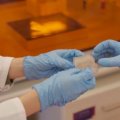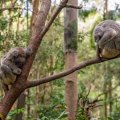A University of Queensland researcher has developed the first known test of children's nous with a mouse.
For her PhD with the University's Occupational Therapy Department, Dr Alison Lane studied the mouse skills of 221 Brisbane and Ipswich children aged five to 10.
"Using a mouse is not a natural skill and must be acquired by children from a young age," she said.
Her thesis not only came up with a quick and accurate test of children's mouse competence but also confirmed the integral role computers played in the daily educational and recreational lives of children.
"I found nearly 70 percent of the study group reported using a mouse at least once a month with only 10.4 percent saying they had never used a mouse," Dr Lane said. "Nearly 44 percent of the children reported using a mouse at least once a week.
"Children these days are exposed to personal computers at school and at home from pre-school age and are at a distinct disadvantage if they have problems using a mouse.
"Being able to quickly and efficiently manipulate a mouse is vital for children's access to computer-based networks including the Internet."
Her test appears as a computer game and measures children's proficiency in four areas: pointing and dragging; dragging to draw; dragging to place; and tracking a moving target.
"The 30-minute test gives occupational therapists working with children reliable baseline data on which to compare children's abilities in this area," Dr Lane said. "In the past, we have concentrated on skills such as handwriting as the keys to accessing the world. The ability to use a mouse is now just as important for the adults of tomorrow."
Dr Lane, senior occupational therapist with the Cerebral Palsy League, said her study found age and previous experience rather than gender or visual-motor co-ordination were the most important predictors of children's mouse competence.
"Between the ages of five and 10, children became far more competent at using a mouse. The only slight gender influence I found was that girls were smoother mouse users than boys," Dr Lane said.
For more information, contact Dr Alison Lane (telephone 07 3358 8012 at work or mobile 0413 201 012).
.jpg)



